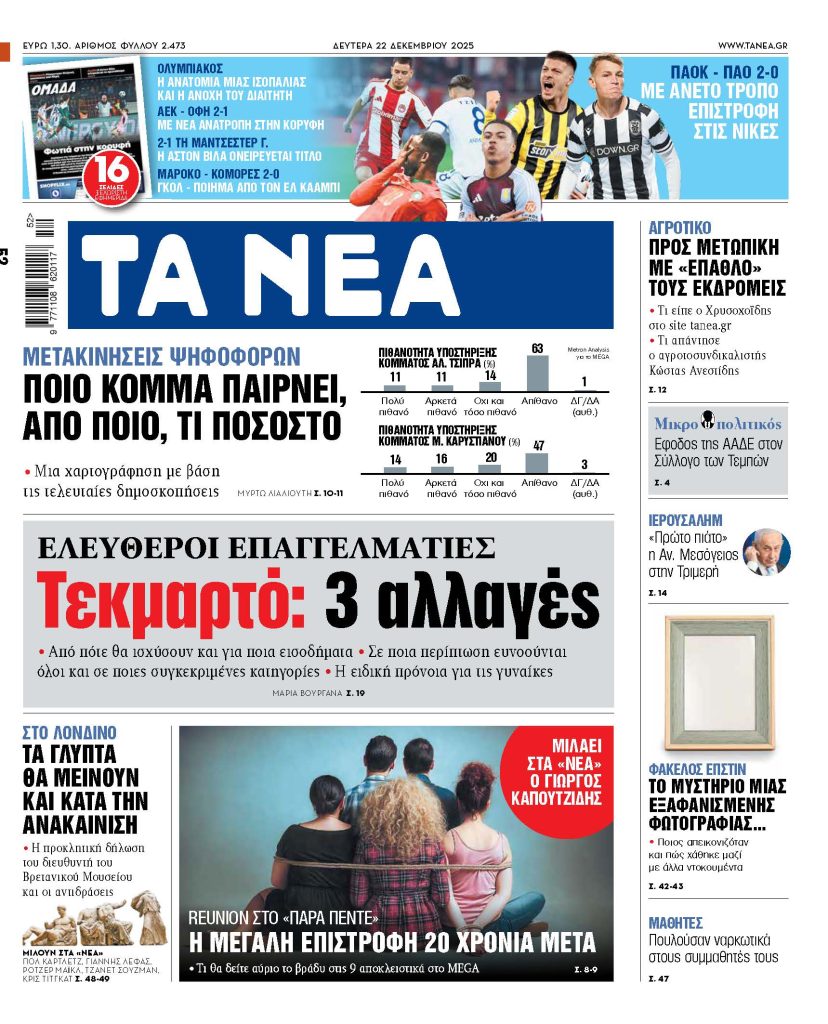The decision of the Attica Aliens’ Bureau to once again remand in custody for three months the Turkish officer whose asylum status was suspended, after a petition of Greek Migration Minister Nikos Mouzalas, has caused a tremendous backlash from rights groups.
Ta Nea, in an exclusive today, published a scanned copy of the decision, issued yesterday by the head of the Attica Aliens Bureau, Brigadier General Konstantinos Louziotis, in which 35-year-old Turkish officer Suleyman Ozkaycakci’s previous custody, before he was granted asylum, was renewed.
The rationale, as presented in the decision, presents the officer as a threat to national security and peace in Greece, and states that Ozkaycakci will be kept in custody pending the ruling of the Athens Appellate Council, which on 15 February will review the government’s lawsuit seeking to annul the officer’s international protection.
The Aliens Bureau’s 8 January decision reflects the government’s reasoning in its petition for the suspension of Ozaycakci’s international protection.
A Turkish threat to Greek national security?
The government had argued that the international protection undermines the public interest, as Greece’s national security would be threatened by Turkey, due to the case of the officers, who are accused of participating in the abortive coup against the regime of Recep Tayyip Erdogan
Louziotis after the backlash told Ta Nea that he believed that the officer was not at all distressed by the decision, something he maintained is evidenced by the fact that Ozkaycakci’s advocates from the Greek Council for Refugees have not exercised his right to appeal the bureau’s decision in the competent “special lower court”.
He said his decision was merely an extension of the officer’s detention prior to the granting of asylum, effectively a return to the status quo ante.
Threat to the officer’s safety from abroad?
Louziotis offered no comment when asked, due to the fact that his decision cites the safety and welfare of the officer, whether he believed there was evidence or indications that Ozaycakci was in danger of being abducted or murdered.
Vasilis Papadopoulos, the attorney for the Greek Council for Refugees, told Ta Nea that the council will exhaust all legal means, and that “unfortunately, criminal responsibilities arise” for Louziotis, due to the decision that he signed.
Papodopouos refused to directly answer if he will appeal the decision to remand the officer in custody, and declared that the aliens’ bureau chief had no right to speak to a journalist.
Papadopoulos was Syriza’s migration ministry general secretary until November, 2016, when he resigned, reportedly over Mouzala’s determination to enforce the EU-Turkey agreement on refugees and migrants.
The decision to remand the officer in custody
The decision signed by Louziotis, which essentially reiterates the government’s argument in seeking suspension of the officer’s international protection, reads as follows:
“The activation of the established legal procedure for remanding [an alien] in custody is mandated – in order to address a serious threat to public order and the national security of the country [Greece] – as the only advisable means [to address the said threats], given the circumstances, which bar alternative means of incarceration.”
“Given the fact that he illegally entered the country [Greece] as an active duty officer of the Turkish Armed Forces, along with seven other co-nationals and active military officers, with the use of a military helicopter, he exhibits such individual behavior that justifies the assessment that he constitutes a serious threat to the national security of the country [Greece].”
Extradition not an option
“Moreover, with him as a pretext, serious dangers are provoked from other persons abroad, ideologically akin and not, who are ill-disposed towards the security and peace of the country [Greece] and its citizens, due to their own aspirations.”
“It is clear that the imposed measure of custody in no way aims to achieve the coercive departure of the foreigner, that it is in harmony with the temporary injunction of the court, and in any case protects not only the public interest, but also the properly understood interest of the foreigner, regardless of his dangerous behavior.”
The Greek Supreme Court has definitively barred extradition of the eight officers, due to the fact that there are no guarantees that they would get a fair trial there.
George Gilson




